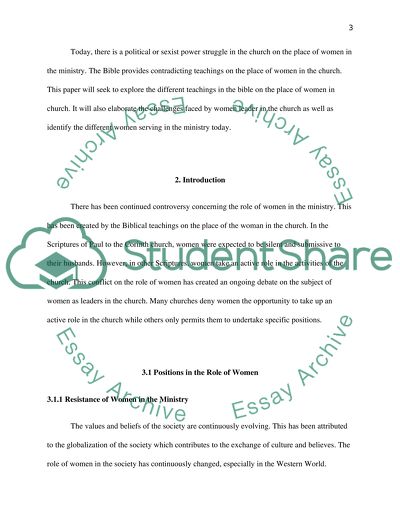Cite this document
(“Role of Women in Ministry Research Paper Example | Topics and Well Written Essays - 3000 words”, n.d.)
Retrieved from https://studentshare.org/religion-and-theology/1398157-role-of-women-in-ministry
Retrieved from https://studentshare.org/religion-and-theology/1398157-role-of-women-in-ministry
(Role of Women in Ministry Research Paper Example | Topics and Well Written Essays - 3000 Words)
https://studentshare.org/religion-and-theology/1398157-role-of-women-in-ministry.
https://studentshare.org/religion-and-theology/1398157-role-of-women-in-ministry.
“Role of Women in Ministry Research Paper Example | Topics and Well Written Essays - 3000 Words”, n.d. https://studentshare.org/religion-and-theology/1398157-role-of-women-in-ministry.


